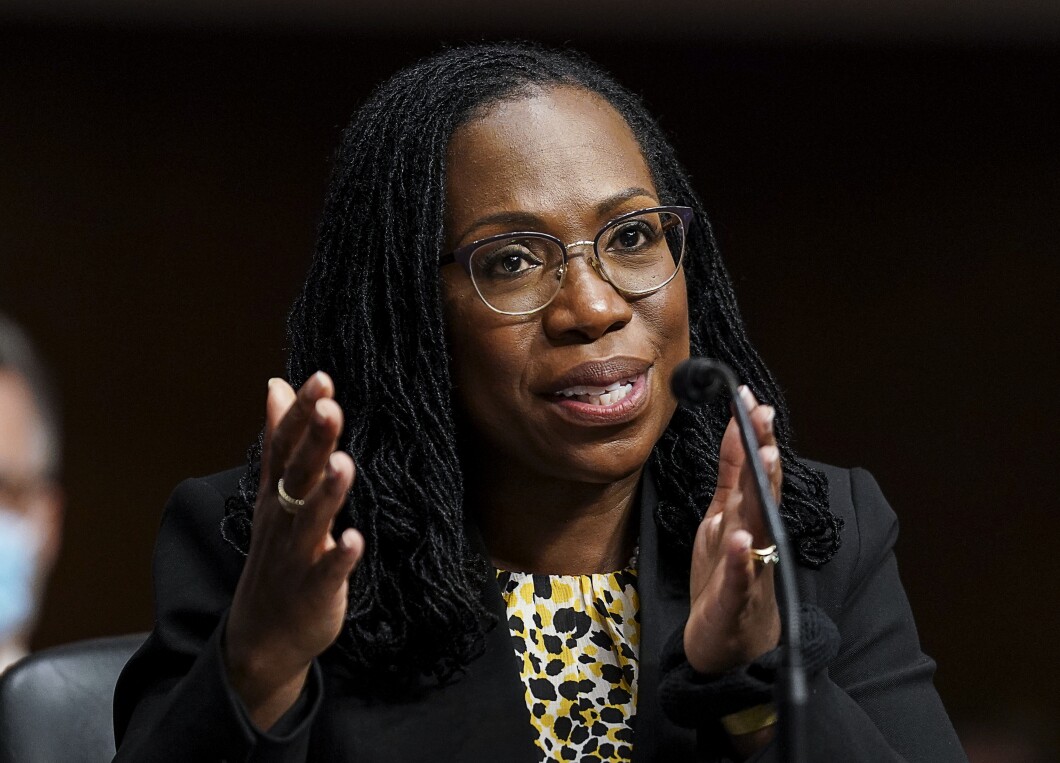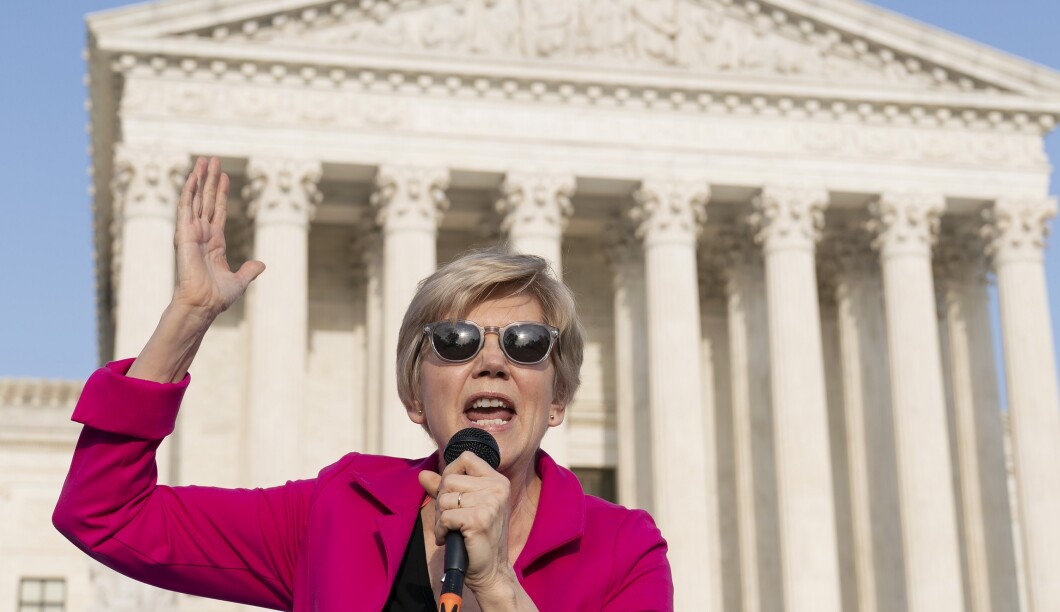
Justice Ketanji Brown Jackson, the Supreme Court‘s most recent appointee, expressed concerns Tuesday about the judiciary becoming a “super legislature” in a key case centering on reining in the administrative state.
“How do we avoid the judiciary becoming suddenly a super legislator, just telling Congress, agency by agency, whether it’s a thumbs up or thumbs down?” Jackson asked in regard to a case that questions the funding mechanism of the Consumer Financial Protection Bureau, which serves to enforce federal consumer financial laws and protect consumers in the financial marketplace.
SUPREME COURT WEIGHS CFPB LEGALITY IN CASE CHALLENGING FUNDING OF FINANCIAL WATCHDOG

The case Consumer Financial Protection Bureau v. Community Financial Services Association of America surrounds claims by financial services companies that Congress’s decision to isolate the CFPB from the annual budget process ran against the Constitution’s appropriations clause because it directs funding straight from the Federal Reserve, rather than direct appropriations by the legislative body.
“I’m a little worried,” said Jackson, a liberal appointee of President Joe Biden, toward the tail end of Tuesday’s oral arguments. “I think about a separation of powers problem that may occur if the judiciary gets involved with telling Congress when and under what circumstances it can exercise its own prerogatives concerning funding.”
Jackson’s concerns on Tuesday did not appear to be anomalous from the rest of the 6-3 Republican-appointed majority. In fact, the three liberal appointees on the high court along with three conservative justices appeared skeptical about the claims as well.
The crux of criticisms against the funding mechanism, which lawmakers put in place when they created the CFPB in 2011, is that it effectively removes future Congresses from altering the funding mechanics in the future, a point that conservative Justice Brett Kavanaugh wasn’t buying.
“Congress could change it tomorrow,” Kavanaugh said. “There’s nothing perpetual or permanent about this.”
Former Trump administration solicitor general Noel Francisco was arguing on behalf of the plaintiffs and fixated on a supposed need for Congress to specify a clear amount the CFPB should receive in funding in order for it to be constitutional.
At some points during the arguments, conservative Justice Clarence Thomas also seemed on the fence, saying that it is “odd” that Congress had never gone this far before but “not having gone this far is not a constitutional problem.”
Conservative Justice Samuel Alito appeared slightly more sympathetic to Francisco’s point, asking the government what provision of the law that allowed the formation of the CFPB says that it “shall not be construed to be government funds or appropriated monies?”

Sen. Elizabeth Warren (D-MA), who is credited with helping create the bureau following the 2008 financial crisis, said the potential implications of a “bad ruling” by the high court could have far-reaching consequences for other agencies and welfare programs that are similarly funded.
“The future of Social Security, Medicare, and every federal banking regulator is under grave threat if payday lenders and Wall Street banks get the Supreme Court to undermine the CFPB,” Warren said in a statement, which echoes much of the arguments raised by Justice Department Solicitor General Elizabeth Prelogar.
But the tone of the majority of the justices on Tuesday signaled that they perhaps aren’t prepared to make the broad ruling that Democrats like Warren and the Biden administration have feared.
Joseph Lynyak, a partner at the international firm Dorsey & Whitney, told the Washington Examiner that several justices appeared “very wary” of reading something into the appropriations clause that would place the courts squarely “into the role of evaluating Congress’ exercise of its power of the purse in virtually all instances.”
Tuesday’s arguments marked the first of three major cases the high court will hear this term that challenge the regulatory authority of federal agencies when it comes to banking, business, industry, or environmental issues.
The Republican-appointed majority just last year ruled the Environmental Protection Agency can’t issue broad limits on greenhouse gases, which curtailed the power of the Biden administration to combat climate change.
CLICK HERE TO READ MORE FROM THE WASHINGTON EXAMINER
One case this term seeks to upend the 1984 precedent known as the Chevron doctrine that tells courts to defer to government agencies’ reasonable interpretation of ambiguous federal law. Another one seeks to curb the power of the Securities and Exchange Commission’s in-house adjudications, or trials by administrative law judges.
The Supreme Court will issue rulings in all three disputes by the end of June.





